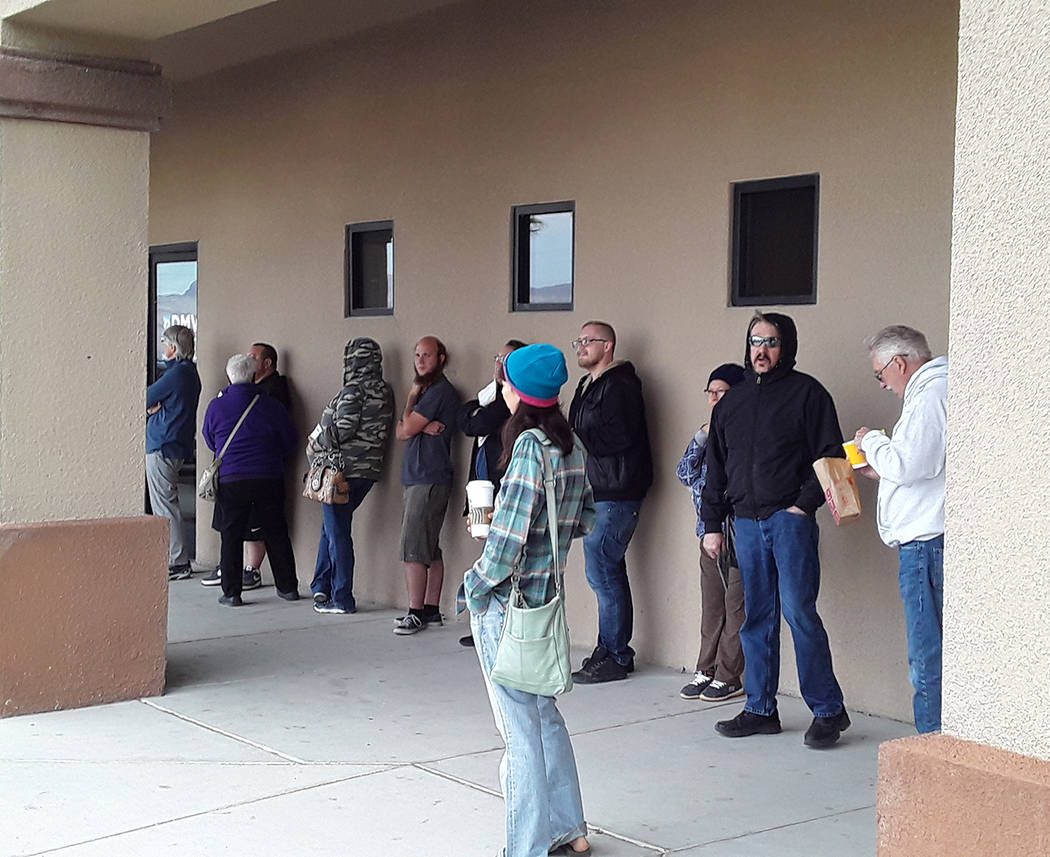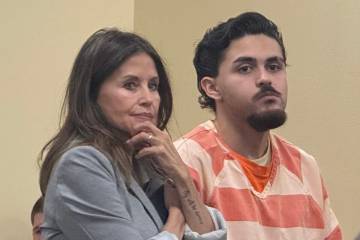DMV to serve appointment customers only
Due to the COVID-19 outbreak, officials from the Nevada Department of Motor Vehicles (DMV), have announced that the agency, till further notice, will only serve customers by appointment only, effective Monday, March 16, according to a news release.
As a substitute for in-person transactions, motorists are encouraged to use online services and other alternates.
The number of customers allowed into rural offices will be limited, as well.
Nevada DMV Director Julie Butler said only customers, or those who are directly assisting a customer, will be allowed inside the DMV office waiting areas, while family and friends should remain at home.
“The health, safety, and well-being of Nevada’s citizens and the DMV staff need to come first during this time,” Butler said. “We are taking precautions to limit the crowds and close proximity of customers in our lobbies in response to concerns related to the spread of COVID-19.”
A list of common transactions that can be performed without visiting a DMV office has been posted on the department’s website at dmvnv.com.
Customers are strongly encouraged to transact business online and without visiting a DMV office.
“Please do not visit DMV offices if you are able to perform your transaction online or through alternate services such as kiosks, mail or fax,” Butler continued. “All customers, including those with appointments, should visit our website first. Please do not seek services in a rural DMV office. The number of customers allowed in those offices at one time will be limited.”
The DMV metro offices in Las Vegas and Reno normally serve approximately 1,100 customers per day.
The agency will be adding appointments to enable staff to serve nearly that many, the release stated.
The precaution Butler noted, does not impact services related to drive test appointments, however, no standby tests will be allowed.
Additionally, dealerships, fleets, registration services, occupational and business licensing, emissions labs and administrative hearings will not be impacted, the release noted.
Regarding services at the commercial driver licensing and motor carrier offices in Sparks and on Donovan Way in Las Vegas, Butler said those offices remain limited to commercial driver’s license and motor carrier transactions only.
“Our hearts go out to those affected by COVID-19, and we appreciate everyone’s assistance in keeping our community and staff safe,” she said.
Appointments are booked through dmvnv.com.
Contact reporter Selwyn Harris at sharris@pvtimes.com. On Twitter: @pvtimes
















